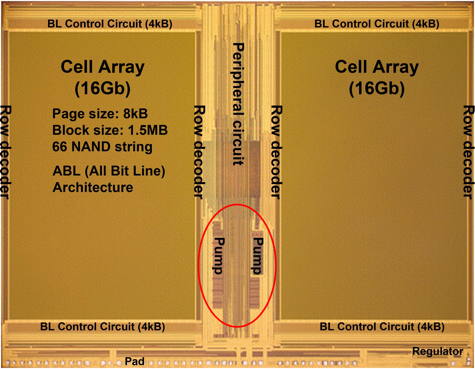SSD reliability lower than disks?

Recent evidence suggests that SSD's are no more reliable than 1 TB hard drives. Given that few SSDs are 1 TB, the reliability per bit is much lower for SSDs. Why?
Background A French site specializing in Mac systems got data from a French retailer on disk and SSD returns. They saw about the same failure rate for SSD's as they did for 1 TB hard drives. More recent 2 TB hard drives were less reliable. Not a surprise since it takes time for the manufacturing processes to mature.
These findings are surprising if you consider flash chips to be like the thousands of other integrated circuits that you use every day. IC reliability is impressive and it is not uncommon for a chip to work flawlessly for a decade or more.
But flash chips aren't like other chips: they require ?20 volts to write data. In the chip world, where insulating layers may only be a few molecules thick, 20 V is a lot of electrical pressure.
Wait a minute, you might think, there isn't a single flash chip that specifies a 20 V or even in 15 V power requirement. And you would be correct.
Flash chips have power specs like other chips. What's different is that flash chips have on-board electrical pumps - in the form of dedicated capacitors and an oscillator - that take supply voltage and convert it to the higher voltage needed to write a flash cell.
Here is a recent annotated chip photograph, courtesy of Toshiba Corporation (the folks who invented flash) that shows the chip area devoted to the pump function.
The Storage Bits take Storage is the most difficult problem in computers. Moving bits through a pipe is easy. Storing bits for years is hard.
It is no surprise that devices composed of multiple high-voltage flash chips may have infant mortality rates similar to disk drives. After all, we've been building disk drives for over 50 years and the advances in density, capacity and reliability are just as amazing as they've been for semiconductors.
The irritating part of all this is that we shouldn't have to rely on data filched from a French retailer to know what to expect from our expensive flash drives. The vendors know what the reliability is: they build hundreds of millions of devices a year and they track the returns on every batch.
But, like every other storage vendor, they would rather give us bland assurances than hard facts. First mover disadvantage and all that.
Bottom line: don't trust your SSD any more than you trust a hard drive. Backup your data locally and online at least once a week.
Only you can protect your data.
Comments welcome, of course. I'm on my 2nd SSD-equipped notebook: a 13" 4/128 GB MacBook Air. I expect that larger, faster & cheaper mini-SATA replacement drives will be available by the end of 2011.
